Search Results
Search
Filter results
Advanced Filters
Your search returned 314 Solutions
-
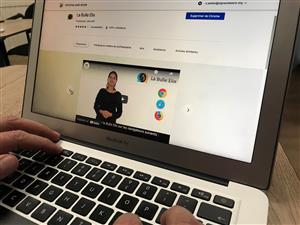
Web-browser extension for looking up explanations in sign language
Elix Dictionary was developed by the French NGO Signes de Sens. It is a bilingual video dictionary in French Sign Language. With free extension for web browsers, Elix Bubble users can access Elix Dictionary by right-clicking on a word without leaving the website.
Signes de sens, La Bulle Elix, France -
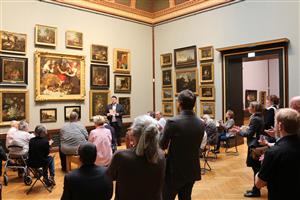
Training people with disabilities to be museum guides
Capito Mecklenburg-Vorpommern, together with the Staatliches Museum Schwerin, has developed a course that trains people with disabilities as art mediators. The course not only teaches art history, but also skills in dealing in dealing and communicating with different visitors or in handling difficult situations.
capito Mecklenburg-Vorpommern, New Ways to Art, Germany -
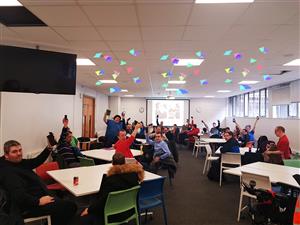
People with intellectual disabilities co-designing digital innovations
The co-design toolkit of Ireland’s Saint John of God Liffey Service (SJOG) enables people with intellectual disabilities to co-create mobile apps that support their daily lives. Launched in 2016, the co-design programme had 70 participants and more than 30 apps being developed by 2022.
Saint John of God Liffey Services, Co-Design Toolkit for Designing Inclusive Apps, Ireland -
At-home support for parents with intellectual disabilities
Begleitete Elternschaft’ (Accompanied Parenthood ) is a project of MOBILE – Selbstbestimmtes Leben Behinderter e.V. from Germany. Since 2006 eight to twelve parents with intellectual disabilities per year are supported in raising their children at home, assisted by educators in the areas of life skills, teaching, and childcare.
Mobile - Independent Living of Disabled People e.V., Accompanied Parenthood (Begleitete Elternschaft, BE), Germany -
People with intellectual disabilities as project coordinators
CHANGE is a non-profit organization led by people with disabilities employing people with intellectual disabilities in open labour market conditions. The projects include a health and care strategic partner programme in cooperation with the National Health Service and a parenting support programme.
CHANGE, United Kingdom -
Anti-stigma campaign
Hjärnkoll is a national anti-stigma campaign in Sweden run by 200 "ambassadors", who are people with their own experience of psychosocial health problems. The key activities of the campaign are directed towards media and training for special targeted groups, such as employers, healthcare staff and police.
Swedish Agency for Disability Coordination, Anti-stigma campaign, Sweden -
Funding for running for an elected office
The Access to Elected Office for Disabled People Fund, established in 2012, offers individual grants to persons with disabilities who wish to put themselves forward as a candidate or for running their election campaign, but who incur additional costs associated with their disability. As of 2014 the Fund had supported 50 candidates.
UK Government Equalities Office, ACCESS TO ELECTED OFFICE FOR DISABLED PEOPLE FUND, United Kingdom -
Promoting Inclusive Sports in Schools
Working in close cooperation with the Special Olympics Austria, Inklusion Sport empowers youth and educators to promote social inclusion. Begun in 2004, they offer unified sport events, education and training in the Austrian state of Styria. Each year five physical education (PE) teachers receive training to become official advisers on inclusive sport.
Basic Initiative for Sports and Inclusion, Austria -
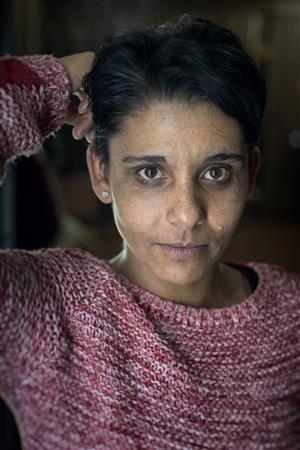
A Biographical Graphic Novel Promoting Deinstitutionalization
The story of Eli is inspiring greater independence for people with intellectual disabilities
Published in 2017, Becoming Eli is the work of Dan Ungureanu and the first graphic novel to address institutional abuse suffered by children and adults, the majority with disabilities. Based on a true story of a young girl left in state care the book wants to show that with the right support deinstitutionalization is possible.
Ceva de Spus Association, Gravis Novel Becoming Eli, Romania -
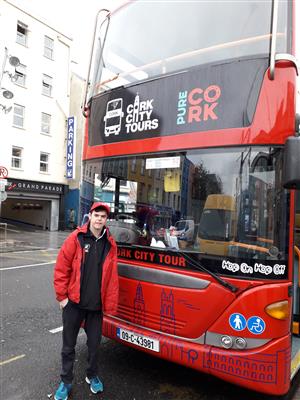
Assigning job coaches for young jobseekers with intellectual disabilities
Job coaches assist young people with an intellectual disability or autism to find paid employment. Job seekers contribute to the planning and delivery of the programme. Between 2018 and 2020, 69 people were registered and 37 people have been placed in supported employment jobs.
COPE Foundation, Ability@Work, Ireland